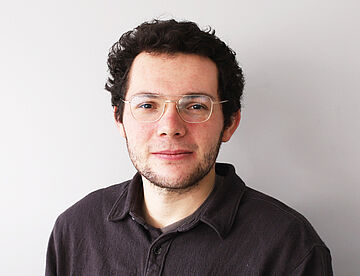Dynamics of Digital Mobilization
The research group investigates the logics and interrelationship of digital information infrastructures, (transnational) mobilizations in networked digital publics, the dynamics of diffusion and manipulation of information under conditions of automation and algorithmic control, and the quality of public debates in Europe and on an international scale.
The research group Dynamics of Digital Mobilization investigates the forms, contents and dynamics of public debates, protests and mobilizations on contested political issues and anti-democratic content. We research digital platforms and networked publics with an international comparative perspective across different European countries.
At the level of (1) technical infrastructures, we are concerned with the question of how the architectures of digital platforms shape the forms and content of political debates. On the level of (2) actors, we are interested in those groups and constellations in which hybrid actors between journalism and politics and/or transnational networks manipulate public debates and influence the formation of public opinion in the digital space through false or half-true information. Our interest is focused in particular on forms of coordinated strategic actions with the help of automation and algorithmic control. How do such automatically controlled campaigns on the internet influence the political public and political debates in government, parties, parliament, civil society and on the street? On the level of (3) processes, we are interested in understanding the dynamics of politicisation as well as the diffusion and instrumentalisation of manipulated information and disinformation: How do political intentions and algorithm-driven mechanisms interact and how does this interplay shape public debates, protest and the political conversation in society? What public debates emerge as a result of such opinion dynamics and what are the consequences of digitally controlled and semi-automated campaigns on democratic political culture, policy-making and the behaviour of governments, parties and civil society?
The research programme seeks to conduct a systematic social science analysis of the mechanisms of digital connectivity and its intended and unintended consequences on politics and society, both within and between European democracies and in international comparison. We are interested not only in the overarching question of how these processes affect the structures of public debate, information quality and ultimately democracy in Europe, but also in what political, civil society and journalistic responses can do to counteract them.
In its empirical projects, the research group works with methods of computational social science, with network analyses as well as automated and manual content and frame analyses, which can be complemented by qualitative survey methods.
The research programme builds on the projects and publications of the previous research group Digitalisation and Transnational Public Spheres. In this group, we have dealt with the role of digital technologies and media in the emergence of (trans)national public spheres, communication infrastructures and processes of political mobilization. The research output of our previous group is documented here.
Research Group Members
-

Prof. Dr. Barbara Pfetsch
Principal Investigator
-

Dr. Annett Heft
Research Group Lead
-

Corina Schwippel
Research Group Assistant
-

Dr. Kilian Bühling
Research Associate
-

Dr. Daniel Thiele
Research Associate
-

Xixuan Zhang
Research Associate
-

Baoning Gong
Research Associate
-

Miriam Milzner
Research Associate
-

Joana D. Becker
Student Assistant
-

Kristian Hristov
Student Assistant

